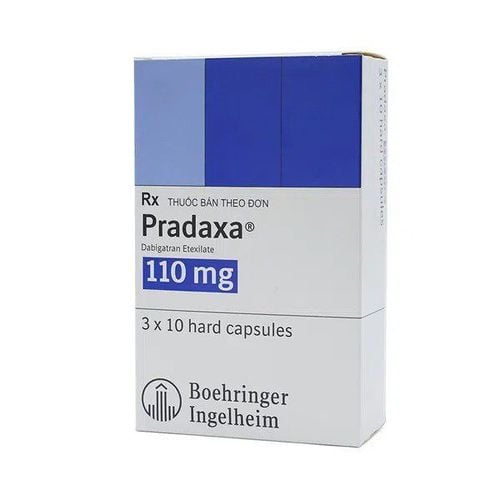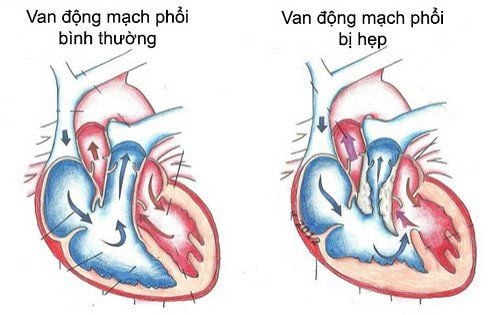This is an automatically translated article.
Currently, heart valve replacement surgery to treat damaged heart valves is becoming more and more popular. A question that many people are interested in is how long does it take to replace the heart valve, is the artificial heart valve durable? This article will analyze this issue in more detail.
1. What types of artificial heart valves are there?
Heart valves are thin and flexible leaves in the heart. It determines the direction the machine flows in - out of the heart. There are four main types of heart valves, centrally located: the mitral valve, the pulmonary valve, the tricuspid valve, and the aortic valve. Common valvular diseases are valvular regurgitation, valvular stenosis, or both stenosis and regurgitation on one or more heart valves.
Heart valve replacement surgery is becoming more and more popular. The two most commonly replaced heart valves are the mitral valve and the aortic valve. There are many materials used to replace these heart valves, the most common of which are mechanical heart valves and biological heart valves. In addition, there are allogeneic grafts taken from the tissues of the dead. Choosing the right valve to replace is not easy because currently there is no artificial valve that is considered the best for all patients in all circumstances. Therefore, the doctor will have to consider the pros and cons of each type of heart valve in each specific case to choose the most suitable replacement valve.
2. How long does it take to replace a heart valve?
2.1 Mechanical Valves Mechanical valves commonly used today have a 2-blade construction, made from carbon (pyrolytic carbon) or titanium coated with pyrolytic carbon. Because they are made from man-made materials, the biggest advantage of mechanical valves is durability. In theory, mechanical valves can last for more than 30 years or the entire life of the patient without compromising structure and function.
However, because they are made of artificial materials, mechanical valves require the patient to take anticoagulants for the rest of their lives. This also comes with many risks such as: Overdosing (causes bleeding under the skin, gastrointestinal tract, urinary tract, and brain hemorrhage), under-dose (increased risk of clot formation on the valve, can cause valve jamming or even death).

Thay van tim được bao lâu với van nhân tạo là thắc mắc của nhiều bệnh nhân
2.2 Biological Valves Biological valves are made from natural materials, usually from treated bovine or porcine pericardium. Therefore, the biggest advantage of biological valves is that there is no need for lifelong anticoagulation, and anticoagulation can be stopped 3 months after surgery.
The biggest disadvantage of biological valves is that the natural valve tissue of the different species will degenerate over time, affecting the valve's operation, causing re-stenosis or artificial valve regurgitation. Therefore, the life span of biological heart valves only lasts from 8 to 15 years. Therefore, after a period of artificial heart valve replacement, the patient will have to have surgery again to replace the new valve.
The degree of degeneration of the biological valve depends on the age of the patient and the pressure exerted on the valve. The younger the patient, the faster the valve degenerates.
And allogeneic (donor) heart valves have high antibacterial, better life expectancy than biological valves but less mechanical valves, do not need anticoagulants. However, the number of homologous heart valves is very small, the size is not diverse, and the implantation technique is complicated.
Thus, with the question of how long to replace the heart valve, in terms of durability, the mechanical valve has a longer durability. However, patients with mechanical valve replacement must take anticoagulants for life, which comes with many risks. Therefore, the choice of valve type needs to be based on many factors to decide.
Cardiovascular disease is generally a complex specialty, in which surgical interventions on heart valves are advanced and sophisticated techniques. Therefore, understanding about the benefits and risks of cardiovascular intervention, as well as choosing a place to perform it that is reputable, has good doctors and good equipment is extremely necessary.
Cardiovascular patients can choose to be examined and treated at Vinmec International General Hospital. There is a team of Cardiologists, including Professors, Doctors, Specialist 2 doctors, Masters with experience, great reputation in the field of medical treatment, surgery, interventional cardiac catheterization. . Vinmec also focuses on applying advanced techniques in the diagnosis and treatment of cardiovascular diseases, using a system of modern medical equipment that meets international standards, helping to improve the efficiency of examination and treatment.
Please dial HOTLINE for more information or register for an appointment HERE. Download MyVinmec app to make appointments faster and to manage your bookings easily.













